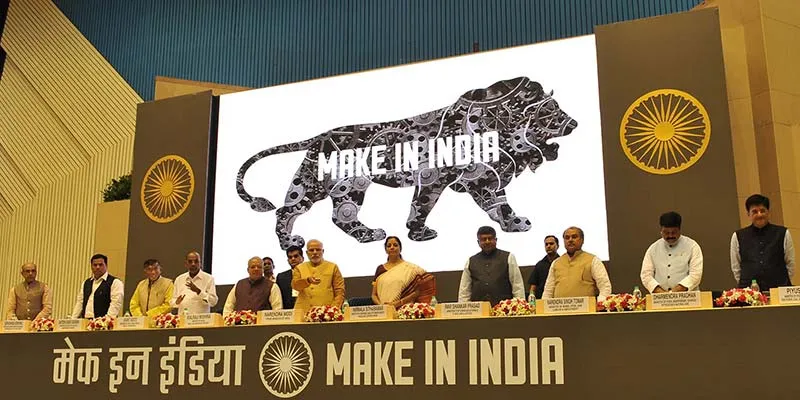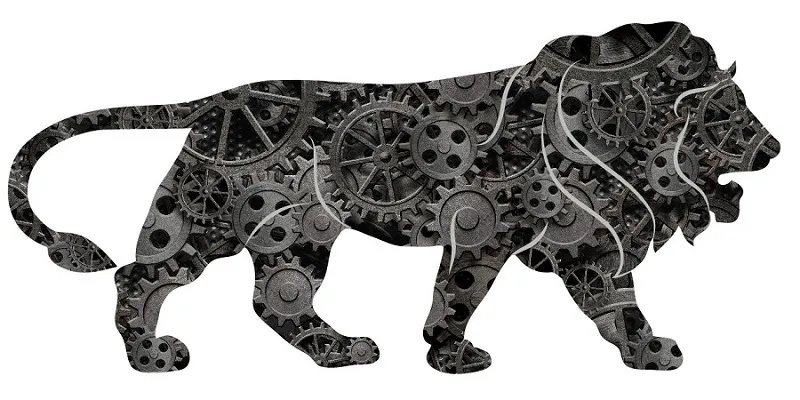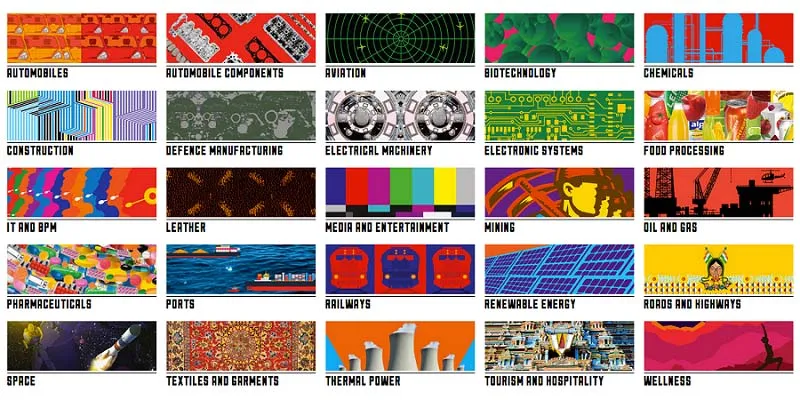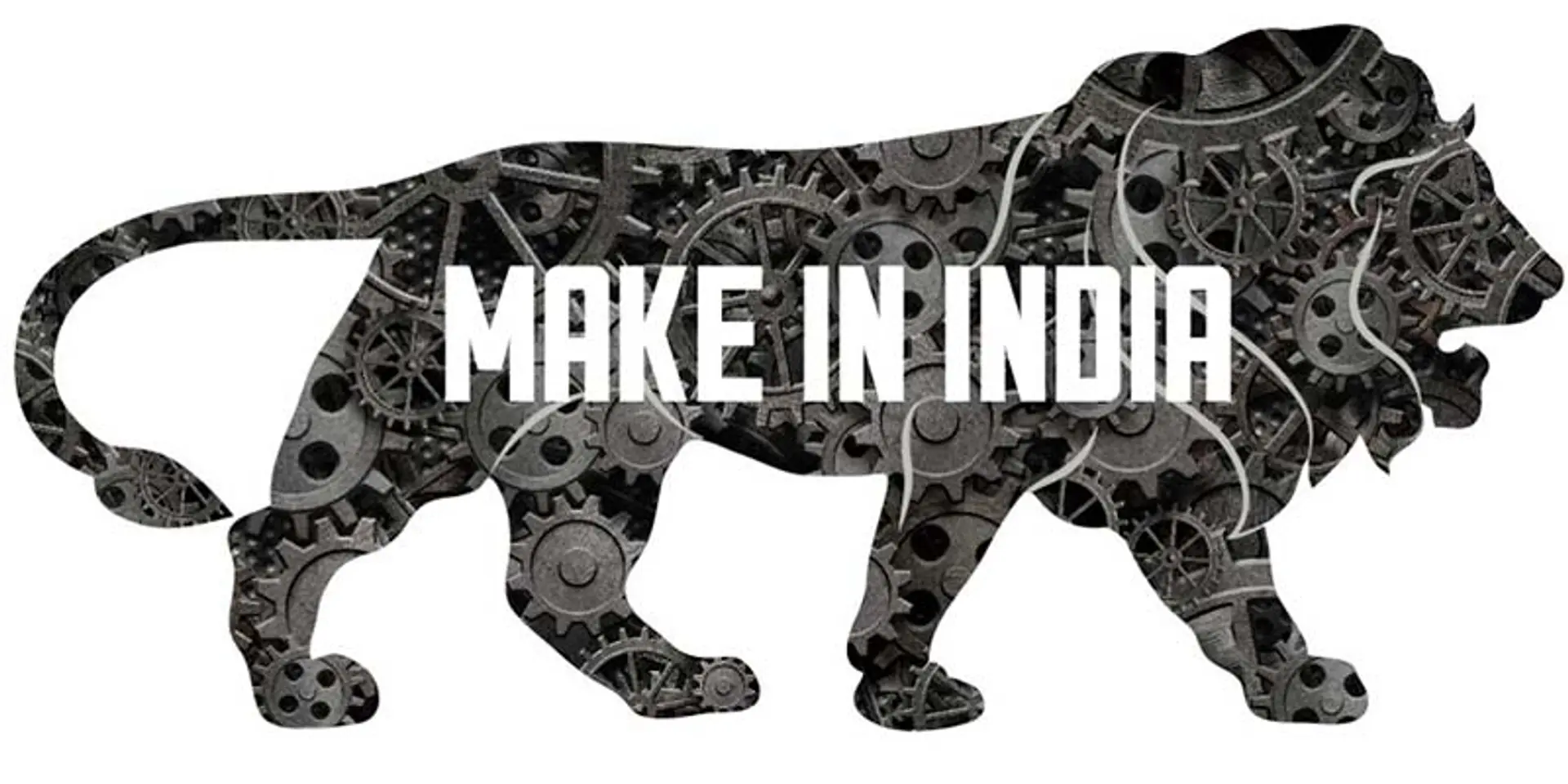Why Narendra Modi’s Make In India is indeed a step of a lion
Remember the Independence day speech of Narendra Modi? From the ramparts of Red Fort he had announced,
Let's resolve to steer the country to one destination. We have it in us to move in that direction.
Come, make in India", "Come, manufacture in India". Sell in any country of the world but manufacture here. We have got skill, talent, discipline, and determination to do something. We want to give the world a favourable opportunity that come here, "Come, Make in India" and we will say to the world, from electrical to electronics, "Come, Make in India", from automobiles to agro value addition "Come, Make in India", paper or plastic, "Come, Make in India", satellite or submarine "Come, Make in India". Our country is powerful. Come, I am giving you an invitation.
And bang! Forty-one days later at Vigyan Bhawan, New Delhi, Modi announced the launch of India’s most ambitious plan to boost manufacturing in the country in the presence of business stalwarts like Mukesh Ambani, Cyrus Mistry, Kumar Mangalam Birla and Azim Premji.

Through Make In India initiative, government will focus on building physical infrastructure as well as creating a digital network to make India a global hub for manufacturing of goods ranging from cars to softwares, satellites to submarines, pharmaceuticals to ports and paper to power.
This initiative is nothing less but a giant leap or the step of a lion. As we write this, the official Facebook page of Make In India has crossed 120K likes and its twitter handle has more than 13K followers, all this, in a day’s time.
Here’s everything about MakeInIndia and why it is a stepping stone towards making India an investment hub.
What is MakeInIndia
Make In India is a new national program designed to transform India into a global manufacturing hub. It contains a raft of proposals designed to urge companies — local and foreign — to invest in India and make the country a manufacturing powerhouse.
Sectors covered
The focus of Make In India programme is on creating jobs and skill enhancement in 25 sectors. These include: automobiles, aviation, chemicals, IT & BPM, pharmaceuticals, construction, defense manufacturing, electrical machinery, food processing, textiles and garments, ports, leather, media and entertainment, wellness, mining, tourism and hospitality, railways, automobile components, renewable energy, mining, bio-technology, space, thermal power, roads and highways and electronics systems.

The logo
The Make In India logo is derived from India’s national emblem. The wheel denotes the peaceful progress and dynamism – a sign from India’s enlightened past, pointing the way to a vibrant future. The prowling lion stands for strength, courage, tenacity and wisdom – values that are every bit as Indian today as they have ever been.
What comes in the package
Global investors have been unsparing in their criticism about complex rules and bureaucratic red tape that delay investment decisions. India ranks 134 out of 189 countries in the World Bank’s ease of doing business index in 2014. As part of Make In India initiative, foreign investment caps in construction will be eased to enable greater participation in the NDA government's 100 smart cities project and affordable housing. The initiative will also target top companies across sectors in identified countries.

The Prime Minister said
“FDI” should be understood as “First Develop India” along with “Foreign Direct Investment."
He urged investors not to look at India merely as a market, but instead see it as an opportunity.
Major highlights of the Make In India plans are as follows:
1. Invest India cell: An investor facilitation cell set up by the government will act as the first reference point for guiding foreign investors on all aspects of regulatory and policy issues and to assist them in obtaining regulatory clearances. The cell will also provide assistance to foreign investors from the time of their arrival in the country to the time of their departure. The information & facts that potential investors need for each sector have been compiled in brochures.
2. Consolidated services and faster security clearances: All central government services are being integrated with an e-Biz single window online portal while states have been advised to introduce self-certification. The ministry of home affairs have been asked to give all security clearances to investment proposals within 3 months.
3. Dedicated portal for business queries: A dedicated cell has been created to answer queries from business entities through a newly created web portal ([http://www.makeinindia.com). The back-end support team of the cell would answer specific queries within 72 hours. The portal also boasts of an exhaustive list of FAQs answers.
4. Interactions with the users/visitors: A pro-active approach will be deployed to track visitors for their geographical location, interest and real time user behaviour. Subsequent visits will be customised for the visitor based on the information collected. Visitors registered on the website or raising queries will be followed up with relevant information and newsletter.
5. Easing policies and laws: A vast number of defence items have been de-licensed and the validity of industrial license has been extended to three years.
With a view to providing flexibility in working hours and increased intake of apprentices for on the job training, the government plans to introduce a single labour law for small industries by December. An advisory has been sent to all departments/state governments to simplify and rationalise regulatory environment (which includes online filing of all returns in a unified form).

Why the need to Make In IndiaNarendra Modi stated the reason and motive to launch Make In India very clearly,
It is important for the purchasing power of the common man to increase, as this would further boost demand, and hence spur development, in addition to benefiting investors. The faster people are pulled out of poverty and brought into the middle class, the more opportunity will there be for global business. Therefore, investors from abroad need to create jobs. Cost effective manufacturing and a handsome buyer – one who has purchasing power – are both required. More employment means more purchasing power.
Modi had felt a mood of gloom among India’s business community in the last few years, due to lack of clarity on policy issues. He said,
“Trust is essential for investors to feel secure. Let us begin with trust; if there is an issue, Government can intervene. Trust too can be a transformative force. Development and growth-oriented employment is the government`s responsibility.”
What does future look like
To the expression “Look East,” Modi added “Link West”, emphasizing on the necessity of a global vision. Referring to his vision of waste water management and solid waste management in 500 towns across India through public private partnership, he said that Mission Swachh Bharat and “waste to wealth” could lead to good revenue models for business as well.
The Prime Minister believes in the infrastructure of the future – including i-ways besides highways – and mentioned port led development, optical fibre networks, gas grids and water grids. Digital India mission would ensure that Government processes remained in tune with corporate processes.
He said,
Make in India...this is the step of a Lion.
Nobody can question the talent of our people, especially after the Mangalyaan"
Make In India’s success relies a lot on the fate of the newer companies and statups. A mission which can go either way at this stage, was envisioned by Narendra Modi as follows,
If each one of our millions of youngsters resolves to manufacture at least one such item, India can become a net exporter of goods. I, therefore, urge upon the youth, in particular our small entrepreneurs that they would never compromise, at least on two counts. First, zero defect and, second again zero effect. We should manufacture goods in such a way that they carry zero defect, that our exported goods are never returned to us. We should manufacture goods with zero effect that they should not have a negative impact on the environment.
First the INR 10000 Cr startup budget, then the portal mygov.nic.in and now Make In India.
What's next? Stay tuned for more updates!







